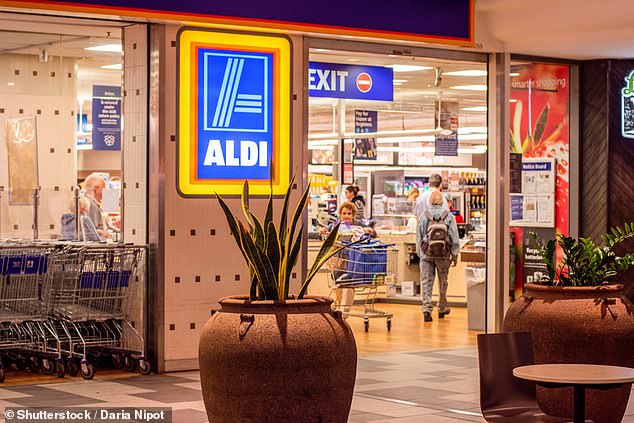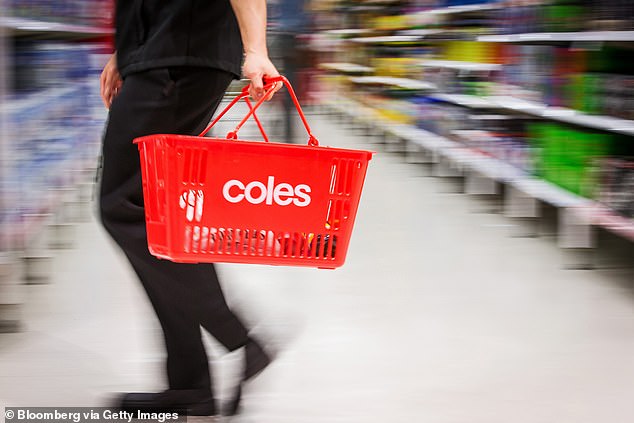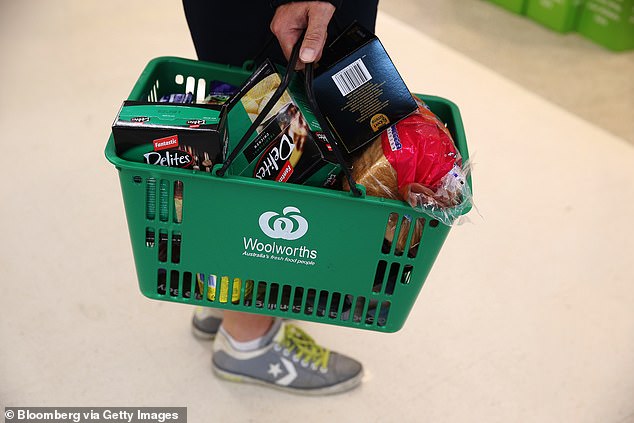Australia’s cheapest supermarket is revealed: Here’s where you can get the most bang for buck
Shoppers have been able to cut grocery bills by a quarter by ditching the big supermarkets, a report has found, but those in Tasmania and the Northern Territory will miss out on the opportunity.
Research from consumer group Choice found that Aldi had the lowest prices of the major supermarkets for a basket of average goods.
An average basket of 14 common household items from Aldi costs $51.51, compared to $68.58 at Woolworths and $69.33 at Coles.
Aldi has been crowned the cheapest supermarket in Australia

“Aldi was the clear leader in value for money in our first supermarket basket survey for 2024, with our basket of 14 products costing just $51.51,” said Ashley de Silva, CEO of CHOICE.
According to the report, the lack of Aldi stores in Tasmania and the NT has contributed to higher average supermarket prices in those jurisdictions.
Shoppers in Tasmania paid an average of $68.90 for the basket of goods, while those in the NT paid $68.82.
On average, customers in the remaining jurisdictions paid between $62 and $64 for the same items.
Choice chief executive Ashley de Silva said where customers lived determined how much they would pay at the till.
“If you live in Tasmania or the Northern Territory, you’re paying significantly more for your groceries every week,” he said.
‘However, this is mainly because these areas have more limited shopping options than the rest of the country, where there is no Aldi in Tassie or the NT.’

The consumer group sent mystery shoppers to 81 regional and metropolitan supermarkets across the country, including Aldi, Woolworths and Coles

Grocery prices at Coles and Woolworths are very close, with just 75 cents separating the prices of our basket of 14 items without special offers
The basket of items consisted of bread, flour, milk, ground beef, canned tomatoes, Weet-Bix, apples, carrots, penne, a block of cheese, frozen peas, butter, sugar and tea.
The report was the first of quarterly, government-funded reports on supermarket prices designed to help address concerns about the cost of living at the checkout.
Competition Minister Andrew Leigh said the report shows it pays to shop around.
“We have seen a rise in split-basket shopping in recent years as households have felt cost-of-living pressure… (which) will put greater competitive pressure on the majors,” he told reporters.
Tasmanian Senator Tammy Tyrrell lamented the lack of supermarket competition in her state.
“Tasmanians bear the costs of being put in the too-hard basket by Aldi and other supermarkets,” she said on social media.
The federal government has provided Choice with $1.1 million over three years to conduct the reports.
A federal investigation has called for a mandatory code of conduct between supermarkets and suppliers, with the final report on the code due by the end of June.
Aldi welcomed the report, but Coles questioned the research’s methods and offered its own basket prize.
“We welcome Choice’s contribution, but it is unclear whether similar products are being compared,” a Coles spokesperson said.
“Our analysis last week, comparing the same basket in NSW, shows customers can buy these products at Coles for $59.35.”
Woolworths emphasized freedom of choice in its response to the survey.
“We know many of our customers choose Woolworths for our wide range of high-quality products at competitive prices in more than 1000 locations across Australia,” the company said in a statement.
Greens Senator Nick McKim said the report highlighted the need for more players in the market.
“It beggars belief that there could be just a one percent difference in prices between the duopoly,” he said.
‘The choice between Coles and Woolworths is no choice at all.’
